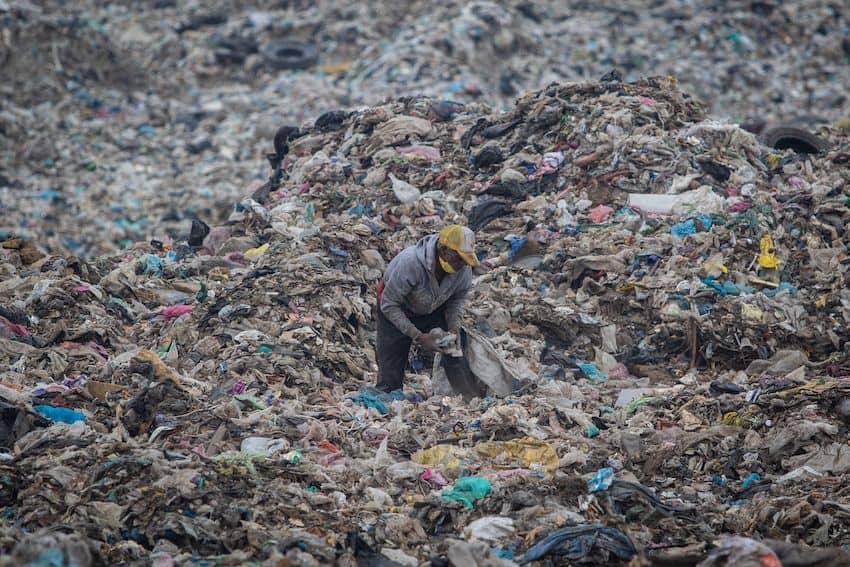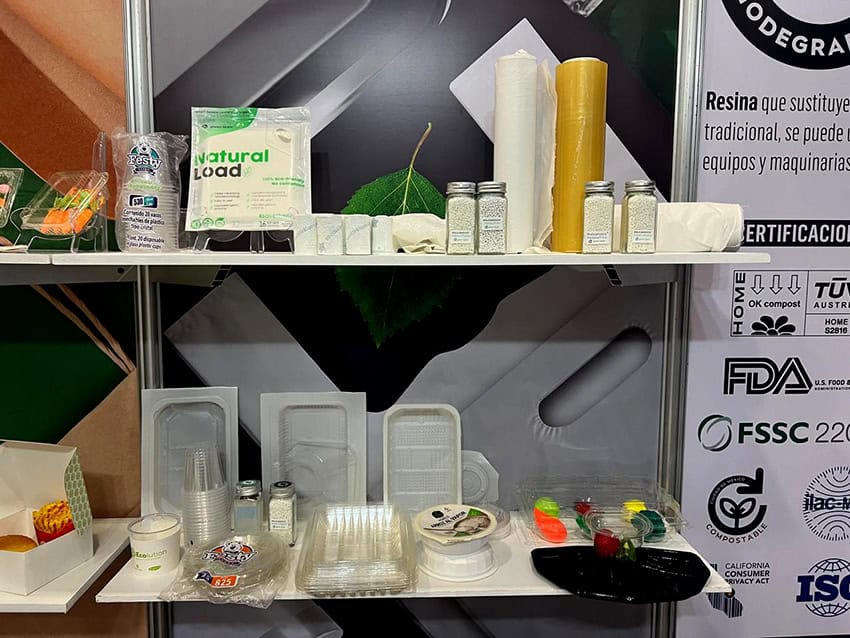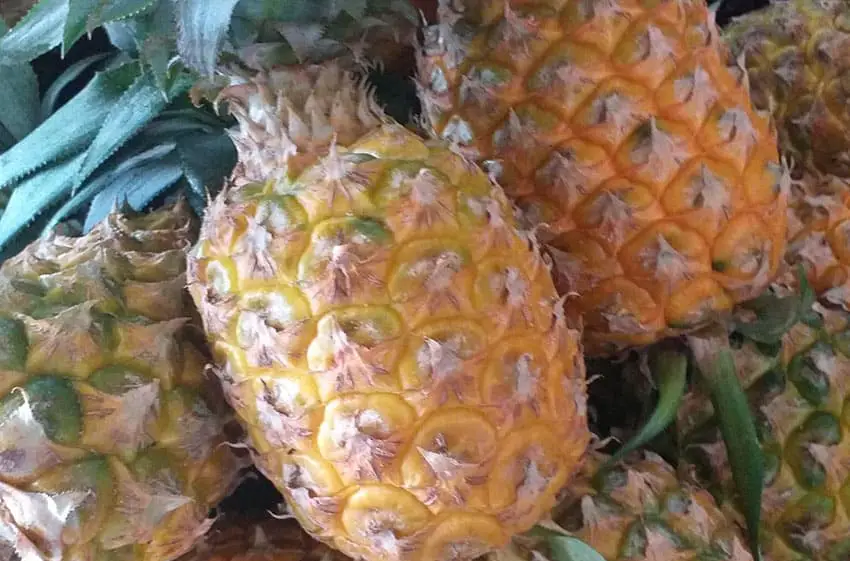It seems the world is being smothered by microplastic. Our oceans are full of it. Here in Mexico the ubiquitous leaf blower raises huge clouds of it for us to breathe. And a little bit of it gets inside us every time we eat or drink anything from a plastic container.
Didn’t they invent biodegradable bags — and paper cups and paper plates — to get rid of this problem?

Well, the truth is now out: the paper in those cups is actually impregnated or coated with plastic. In fact neither the cups nor the plates are recyclable and when they finally break down what you get is microplastic.
Likewise for those supposedly biodegradable bags, which it turns out can only be biodegraded in special facilities. A 2017 study shows that, over a year, there was no degradation seen in so-called biodegradable bags submerged in seawater at 25 C. When they’re deposited in a landfill, a 2021 US National Library of Medicine report says, only one percent will be degraded after 100 years.
And what do those bags eventually turn into? You guessed it: microplastic. Hard to believe? Sad to say, it’s true. Those bags are made out of polylactic, which comes principally from corn. It should be harmless, but in the end, it too can fragment into microplastic.
Enter the new paper cup made by Ecovasos of León, Guanajuato. Like all “paper” cups, it’s impregnated with something to allow it to hold water. In this case, the “something” is called Biovitalio, and Ecovasos says it will decompose in landfill in 12 weeks. and they claim it will never, never turn into microplastic or nanoplastic, which is capable of going through your nose and directly into your brain.

Biovitalio, the magic ingredient in the Ecovaso, is made by a company called The Green Team, which has a commercial office in Mexico City. They put me in contact with company representative Margarita Villanova.
“The Green Team,” Villanova told me, “is the first corporation created to offer eco-compatible products and solutions to reduce the environmental impact of plastics. We have a presence in Asia, America and Europe and our headquarters are in Panama. Our expansion plan in Mexico includes manufacturing and certifying locally in order to enter markets in the United States, Canada, Central America and the Caribbean.”
As for Biovitalio, Vilanova told me it was developed in response to the false belief that cardboard cups and plates don’t pollute. “Just in America,” she said, “more than 25 million cups are used every day and nobody is going to recycle them and they will not biodegrade even though you’ve deposited them in a container for recyclables. So we created Biovitalio and you can actually use our cup to plant a seedling in your garden. The cup will naturally decompose in 12 weeks, in the meantime providing nutrients for your plant because all the ingredients of the cup comply with food grade standards.”
Conversing with Villanova, I learned that the Green Team has a great many other truly biodegradable products that substitute for plastic: heat-shrink film, straws, trays, bio cellophane, bags of all kinds and sizes, bottles, material for 3D printing and a water-soluble laundry detergent called Natural Load, which comes in the form of lightweight biodegradable sheets.
They even have flushable dog-waste bags. Says Villanova, “Our bags never leave microplastics, unlike those made from avocado seed or cornstarch, which need at least 500 years to biodegrade. And we have certifications and laboratory tests to confirm what we say.”
So what is Biovitalio made of?

“We buy Asian pineapples from restaurants,” Villanova told me. “They sell us the parts of the pineapple that they don’t use. We wash and process this material and extract the alcohol. This forms the base to which we add components developed by Green Team to create polyvinyl alcohol.”
I was surprised to learn that this formula — and the Green Team’s roots — go back to the work of Emo Chiellini, award-winning professor of chemistry at Pisa University in Italy.
According to bioplastics expert Michael Stephen, Chiellini and his British colleague, professor Gerald Scott, were among the scientists who had developed plastic in the post-war period. But they came to understand that the durability they had given it would eventually produce serious problems for the whole world.
Eventually they developed what they called “oxo-biodegradable” plastic, but, wrote Stephen in 2020, “their invention ran into fierce opposition from the commercial interests of the bio-based plastic companies and is in consequence being actively obstructed by the EU Commission. However, it is clear to me that more people every day — even in the EU —are realizing the value of their invention.”
John Pint has lived near Guadalajara, Jalisco, for more than 30 years and is the author of “A Guide to West Mexico’s Guachimontones and Surrounding Area” and co-author of “Outdoors in Western Mexico.” More of his writing can be found on his website.
